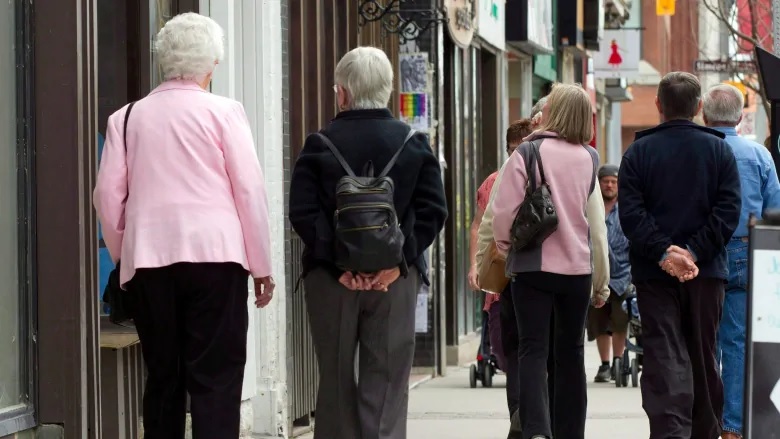It’s always terrific to know that someone has your back.
Especially when you’re a senior citizen.
We are, after all, a burgeoning demographic
It helps a whole lot more when that person is really smart because seniors face a whole host of issues: from the concrete–accessibility, health and financial–to the emotional–self-respect, self-worth and loneliness.
And let’s face it, a lot of our fastballs are not what they once were.

Canada’s 2016 census found there were 5.9 million Canadian seniors, compared to 5.8 million Canadians aged 14 or younger.(Frank Gunn/Canadian Press)
But Megan Joy, an assistant professor of political science at Concordia University in Montreal, has our collective back.
She continues to investigate and analyse how Canadian cities are doing in their treatment of seniors.
In a paper published in the Journal of Aging Studies, Joy looked how things were working for senior citizens in Canada’s biggest city, examining the 2013 Toronto Seniors Strategy, child of the Age-friendly Cites and Communities program developed by the World Health Organization in 2007.
Too often, she found, older adults are being treated as a problem to be solved rather that residents to be served.

Concordia professor Meghan Joy says cities need to do more for seniors. (Courtesy: Concordia University)
Joy says all levels of government need to do way better job of integrating and implementing programs that affect seniors.
I spoke with Joy by phone on Thursday.
Listen






For reasons beyond our control, and for an undetermined period of time, our comment section is now closed. However, our social networks remain open to your contributions.